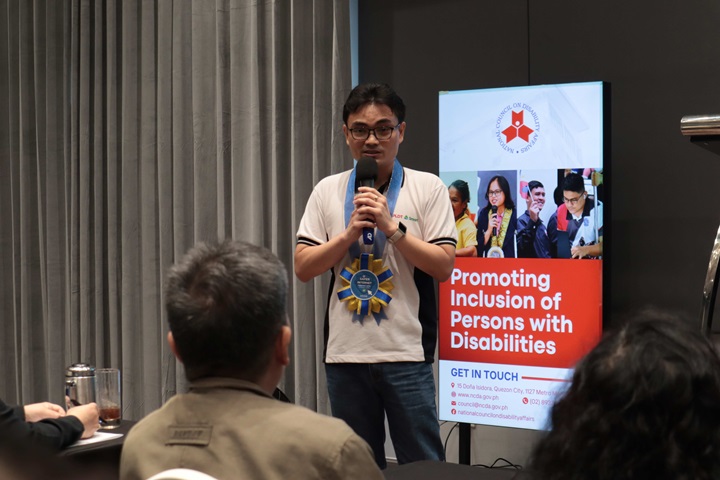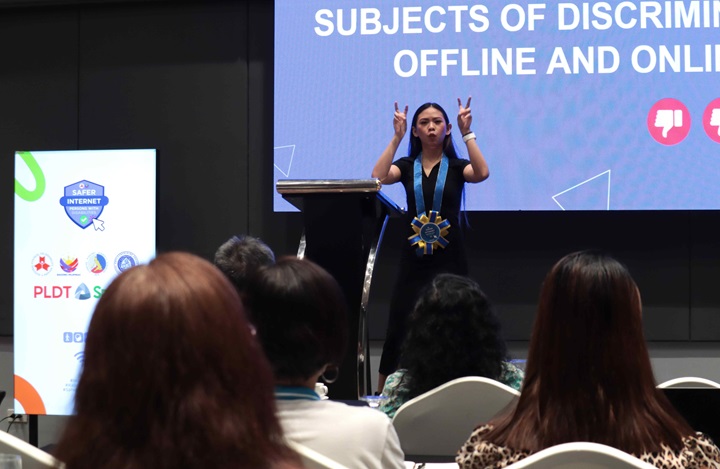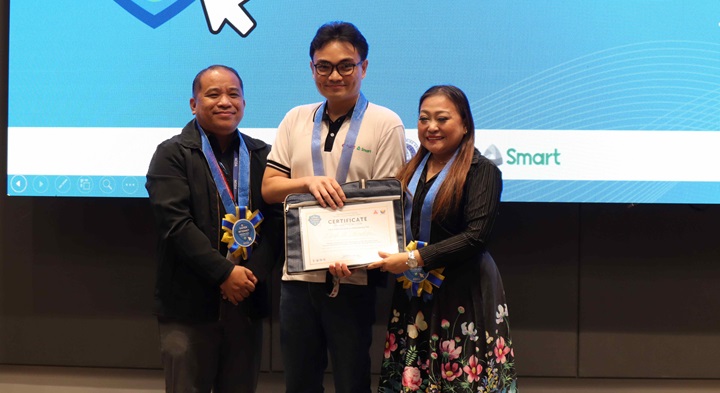PLDT and its wireless unit, Smart Communications, Inc. (Smart), are helping persons with disability secure their digital experience by staying CyberSmart, especially with the emergence of Artificial Intelligence (AI). CyberSmart is PLDT and Smart’s award-winning internet safety awareness program.

“AI should be seen as a tool. When used the correct way, AI is there to help humans accomplish a task,” said Elijah Mendoza, Digital Communications Senior Manager at Smart during the Safer Internet Persons with Disabilities: Consultative Dialogue on Social Media Platforms organized by the National Council on Disability Affairs.
Mendoza noted that criminals use AI to craft messages, even customize the tone depending on the intended receiver. These form part of a complex social engineering scheme aimed at duping victims into revealing valuable information. The most common method is phishing where scammers bait unsuspecting individuals with enticing messages to extract their personal data.
SMShing, which is phishing done through text messages, often lures potential victims with promises of financial rewards or too-good-to-be-true deals by clicking an embedded link that leads to a fake website where customers are asked to key in sensitive information like credit card details.
Mendoza underscored that the key to protecting one’s self from these fraudulent activities is mindfulness. He also shared the following #BeCyberSmart tips with participants to further keep them safe from falling prey to these schemes.
Never open suspicious emails or links. Always verify if the sender is a trusted entity. Don’t login with your username and password in unfamiliar websites. When in doubt, don’t.
Check the destination of links. Make sure they are the correct domain name of the organization.
Brush up on grammar and branding knowledge. Official communication materials from legitimate companies are not plagued with grammatical errors. Check company logos. Note if they’re stretched, pixelated, or screen grabbed.
Most importantly, do not share one-time-passwords or OTPs. These are for your eyes only. Bank representatives, telco agents, or company support staff will never ask for OTPs.

Erline Grace Maniquis, a digital content creator with hearing and speech impairment, appreciated the #BeCyberSmart tips shared by Mendoza. Early this year, her social media account was hacked. Fortunately, she was able to take control of it again after a lengthy process.
“I realize that I have to mindful of what I click and post on social media. Now that we’re in the digital age, we have to employ different layers of protection to avoid being victimized by criminals,” said Maniquis.

Since 2019, CyberSmart has educated around 40,000 participants including teachers, students, business owners, government employees, and other stakeholders on the different online threats. The campaign also helps protect customers from scams and other fraudulent activities using mobile technology.
The efforts of PLDT and Smart to share #BeCyberSmart tips are rooted in their customer-centric culture where they aim to elevate the quality of customer experience by protecting them from threats and cyber-attacks. This initiative aims to strengthen PLDT and Smart’s advocacy towards internet safety amidst the increasing popularity of the use of generative artificial intelligence.

